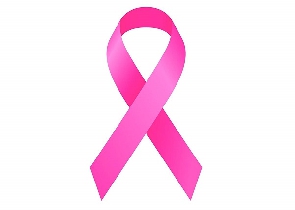Global efforts in the fight against cancer may be making impressive strides, but Nigeria’s weak and outdated health infrastructure has robbed her of the opportunity of becoming a major beneficiary. It is on this basis that the World Health Organisation has warned that Nigeria, alongside other low- and middle-income countries, faces the risk of a 60 per cent increase in cancer cases in the next two decades. For a disease that has already assumed an epidemic proportion in the country, the prospect of 60 per cent increase is terrifying.
So, while the high-income countries have taken advantage of advances in research in cancer prevention and treatment to record an estimated 20 per cent reduction in premature deaths arising from the deadly disease between 2000 and 2015, low-income countries have only been able to enjoy a reduction of five per cent, Elizabeth Weierpass, Director, International Agency for Research on Cancer, said last week.
This has been particularly evident in Nigeria, where only four per cent of the budget has been allocated to health annually in recent years and doctors have been fleeing the country in droves over poor remuneration and challenging work environment. For a country that is still grappling with the excruciating impact of communicable diseases, this is a bleak prognosis of the future, which should serve as a wake-up call for the health authorities.
A statement by WHO put the situation in the low- and middle-income countries – including Nigeria – in perspective when it claimed that “these countries have had to focus limited health resources on combating infectious disease and improving maternal and child health, while health services are not equipped to prevent, diagnose and treat cancer.”
Cancer is defined by WHO as “a large group of diseases that can start in almost any organ or tissue of the body when abnormal cells grow uncontrollably, go beyond their usual boundaries to invade adjoining parts of the body and/or spread to other organs.” Also called neoplasm and malignant tumour, cancer becomes a major death threat when it spreads from its original part to other parts of the body.
Although identified by WHO as the second leading killer-disease in the world, accounting for 9.6 million deaths in 2018, a new study released in September last year shows that cancer is fast taking over as the leading killer. The study, published in the reputable health journal, The Lancet, showed that cancer deaths now top those of cardiovascular diseases in countries such as Canada, Sweden, Chile, Argentina, Poland and Turkey. Seventy per cent of cancer deaths occur in low- and middle-income countries.
In Nigeria, cancer has been killing at an alarming rate. To many, cancer is a death sentence because it is usually diagnosed late, when it must have got to advanced stages, whereas early detection offers bright chances of cure. According to the Nigeria National Cancer Prevention and Control Plan (2018 to 2022), cancer accounts for 72,000 deaths in Nigeria annually. It is also estimated that there are 102,000 new cases of the disease each year.
There are different types of cancer, depending on where they occur. But in Nigeria, breast cancer and cervical cancer are the most commonly diagnosed types among women, while men suffer mostly from prostate cancer. But there are others like lung cancer, colorectal cancer, stomach cancer and liver cancer. Risk factors for cancer, according to WHO, include age, diet, alcohol, tobacco, obesity, hormones, immune-suppression, infectious agents and chronic inflammation.
A risk factor like ageing cannot be avoided since people will continue to grow old; but drinking alcohol and smoking should be avoided, while people should avoid sedentary lifestyle by exercising regularly, to reduce the chances of becoming obese. Eating right is very important. Foods such as sugar and fats, especially processed fat, have been shown to predispose people to cancer. People are advised to eat more of vegetables and fruits. Getting vaccinated against hepatitis B and human papilloma virus will also go a long way in protecting against cancer.
Since the treatment of cancer can be very expensive and most times unaffordable, experts advise that prevention should be given priority. Besides, facilities for treatment in Nigeria are not readily available. Where they are, they are not easily accessible. For instance, it is reported that only eight hospitals have radiotherapy machines for the treatment of cancer in Nigeria, a country of over 200 million people. Needless to say, this is grossly inadequate. In regards to World Cancer Day 2020, the President, Nigerian Medical Association, Francis Faduyile, said, “Prevention, which is the right thing we are preaching, can actually take care of a lot of the burden.”
Fighting cancer therefore needs a strategy, led by the government, especially in a developing country like Nigeria. Many Nigerians spend huge sums of money travelling to India for cancer treatment, which could easily have been done locally if the facilities had been available. Government’s role should include embarking on enlightenment to ensure that people are aware of what they should do. For instance, embarking on regular check-ups is important so that people can know their status.
The January 2018 to December 2022 plan for the national prevention and control of the disease is expected to gulp $308.95 million, with the federal and state governments providing 75 per cent of the funding, while development partners will take care of the remaining 25 per cent. Though the government says it has slashed prices for 16 cancer drugs and upgraded medical facilities, more than two years into the five-year lifespan of the programme, the death and infection statistics have not improved. The country will therefore need more than palliatives to ensure that the menacing advance of cancer is beaten back.
Africa News of Sunday, 16 February 2020
Source: punchng.com

















